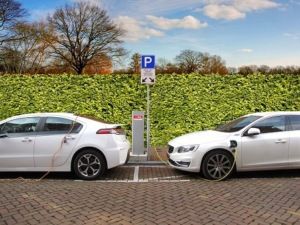News
Energy organisation upbeat on increased numbers of electric cars
This article is more than 7 years old.
Government’s recently announced move to phase out sales of fossil fuel cars will require more power capacity, but the net can deliver

Denmark has expanded its electric vehicle infrastructure, but electric vehicle sales have grown even faster (photo: pixabay/joenomias)
Electric and hybrid cars are increasingly seen as the way forward when it comes to the drastic reductions in CO2 emissions required to tackle the problem of global warming.
In his speech at the opening of Parliament on Tuesday, Prime Minister Lars Løkke Rasmussen pledged to phase out strictly-fossil fuel cars by 2030.
However, the present electricity grid will be challenged in some areas if substantial numbers of people go over to electric cars. Fortunately it seems as if many of these areas are already scheduled for new cabling in the near future, reports Ingeniøren.
Additionally, a clear political commitment to electric cars would hasten the process of investment, so that the necessary capacity can be established within the next 10-12 years.
More intelligent use
Jørgen Christensen, the technical director of Dansk Energi – the branch organisation for energy companies in Denmark – points out that another requirement is that consumers use electricity more intelligently.
He would like to see market mechanisms that create incentives to tank up electric cars during the night hours when domestic consumption is usually at a low ebb.
Calculations reveal that 1 million electric cars would increase electricity consumption by 10 percent – but power-wise that is only about half of the increase that a number of new data centres are expected to use.










































